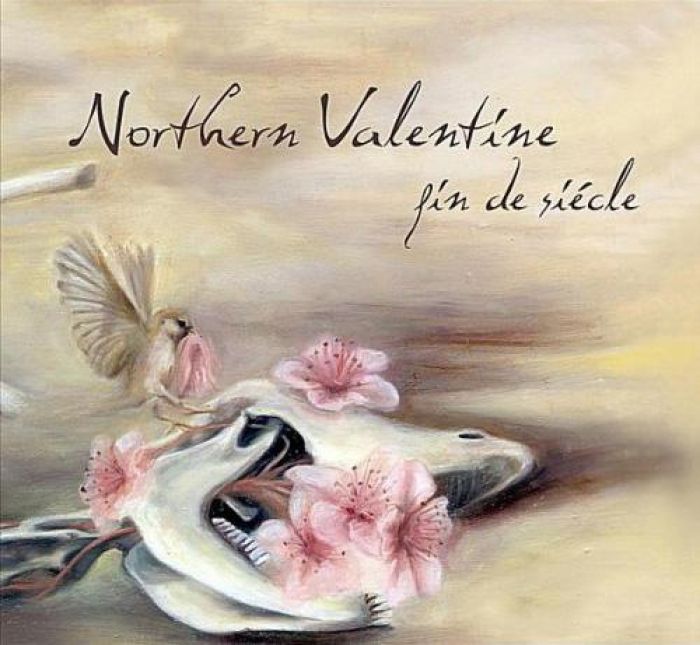Fin de Siècle by Northern Valentine (Review)

I’ll be honest: drone music all too often seems like an easy way out for musicians who think they’re creating evocative and entrancing soundscapes with minimal effort. (I call it the “hold the same note for 15 minutes” syndrome.) But when a drone artist gets it right, as Northern Valentine does with Fin de Siècle, such criticisms quickly fall by the wayside as you find yourself drawn further into the vast territories conjured up by their expansive sounds.
Forlorn guitar notes ring out from within “Rue D’Aureil“ ‘s eerie distortion cloud like beacons on a fog-enshrouded ocean, or the plaintive cry of sailors imprisoned on The Flying Dutchman. “Black Rose” evokes the sort of deep ambient sonorities that are usually Steve Roach’s trademark (think The Magnificant Void). Though one doesn’t normally think of ambient music as “loud” music, I find myself turning the song up in order to more fully experience the song’s cosmically minded depths.
However, not all of Fin de Siècle’s songs have their origins in the ether, or evoke vast spatial reaches as their environs. Anchored by an ominous, Morricone-esque acoustic guitar and crackling guitar buzz, “The White Mountains” leads the listener through barren desert sands, creating a spectral, funereal tone fit for a spaghetti western gunfighter riding to his doom.
Fin de Siècle’s centerpiece, not surprisingly, is the fourteen-minute title track. Opening with fluttering synths and soft piano notes, the song begins on a note that is both lovely and eerie. (This mirrors the album’s artwork, which depicts tiny birds delicately laying down flowers on a bleached skeleton.) As with “Black Rose”, one is tempted to constantly turn up the volume so as to better experience the song’s haunting, poignant sounds. But in this case, that isn’t entirely advisable, as “Fin de Siécle” swells and grows at an imperceptible rate.
By the half-way point, the listener is surrounded by walls of noise and drone that sound like Labradford remixed by Deaf Center. If you’re familiar with either of those groups, then it shouldn’t surprise you when I say that, no matter how massive and even crushing the song’s atmospherics become, they never stop being affecting. What’s more, if you can endure a closer listen, you’ll be rewarded yet again by the group’s attention to detail: sparse piano notes can just be heard ringing out from within the maelstrom, their stark and tenuous existence adding another layer of poignancy to an already powerful piece.
For me, the best drone music does this: it evokes a sense of vast, mysterious expanses that, no matter how dark and ominous they might seem, beckon to be explored and mapped. Such exploration requires little more than a pair of good headphones and a certain level of patience. With a good drone record, and Fin de Siècle is certainly that, the listening experience — the journey through those expanses, if you will — is always worth it. And when it’s over, I find myself wanting to press “Play” and make the trek — and “see” those sights — all over again.